Sea Sunday – 11 July
In March, we all heard the news that a huge container vessel was stuck in the Suez Canal for a week. It was high drama with extensive media coverage because the MV Ever Given blocked a vital shipping route.
Not far away was another ship, abandoned for the past four years, on which Mohammed Aisha has been living. In recent months, he has been completely alone. The number of abandoned crews is on the rise, according to Lloyd's List, leaving many seafarers in precarious situations.
The BBC’s Paul Adams has been in touch with Mohammed for weeks, learning about his isolated, off-shore life. He is living with rodents, no power or fresh water and he must swim to shore for food and water and for topping up his phone. There were more than 250 cases of seafarer abandonment last year, according to Lloyds of London.
Though this is a worst case scenario, there are many seafarers within New Zealand waters who have not been off their ships since the Covid-19 outbreak in March 2020. They cannot get shore leave anywhere. Though community health is paramount, there is also a serious human rights issue because of mental and physical health issues arising from seafarers’ lengthy confinement. No physical contact with family or others, along with no opportunity to return home, is serious. It is, as Mohammed Aisha said, like being in a total metal prison with no respect from shipping companies, shipping agents, or governments, which leads to loss of self-respect and a sense of abandonment.
The global pandemic has, however, generated a shred of light for services to seafarers in this country. After being supported entirely by generous Christians and humanitarians within New Zealand for a hundred years, the government is now beginning to take responsibility for seafarers’ welfare, endorsed further, of course, by the obligations the government incurred by signing the Maritime Labour Convention in 2016.
Stella Maris, along with the two other major Church groups that make up the Seafarers Welfare Board of NZ [SWBNZ] was asked by the Government last September to be part of the border effort to preserve national community health. United as one board, the Christian groups have had defined objectives for the last three years of establishing Port Welfare Committees [PWCs], working with port authorities, maritime trade unions and local governments for seafarers’ rights. Working collectively with faith-based groups, those dedicated to the spiritual, mental and physical welfare of all seafarers, continued in a radically changed way because of the pandemic, to balance seafarers’ human rights to shore leave for essential goods and services along with preservation of community health.
In September 2020, the situation changed when the Ministry of Transport [MoT] offered a trial funding contract to SWBNZ, to pay ship visitors a wage, to cover the expense of purchased consumer goods and services for seafarers, and to cover any administrative and training costs to deliver these services.
Overnight, SWBNZ received government funding and became the employer for paid workers. It also became the official advocate for seafarer rights and was the main body to liaise with MoT, Ministry of Health and Maritime NZ [MNZ] in the maintenance of border control.
Ship visitors had to be trained and qualified and provided with proper Personal Protection Equipment [PPE]. Ship visitors had to be immediately traceable and be tested fortnightly for Covid-19 by local DHBs. Port authorities and Maritime NZ were mandated by the government to work more closely with SWBNZ. This had always been difficult as the port authorities and Maritime NZ viewed themselves for decades as solely providing shipping to regional economies and as having no responsibility for the well-being of foreign seafarers. All services to seafarers in Aotearoa have now begun transitioning from being funded and staffed by faith-based organisations like Stella Maris, to the Crown and the shipping industry also being responsible for seafarer welfare. The change in the last year has been meteoric. Again, New Zealand has led the world in these human rights issues and set a precedent that other governments are considering copying.
Now, faith-based groups have assistance but there is still lots for us to do that government funding does not cover -- important things like hospitality packages with clothing and treats, and advocacy work for just wages or travel back home when there is redundancy or tragedy.

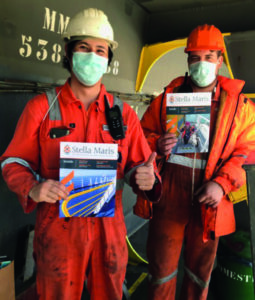
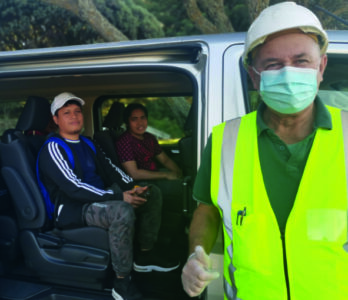
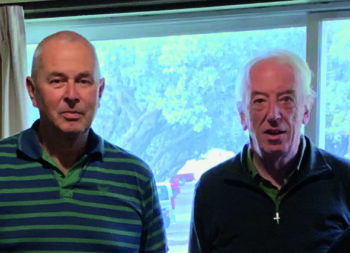
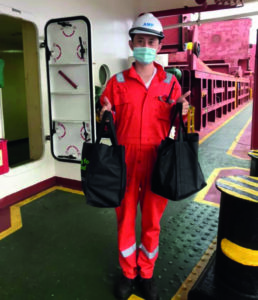
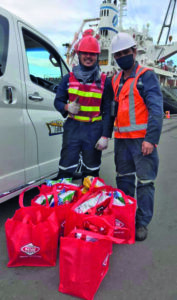
 Entries(RSS)
Entries(RSS)